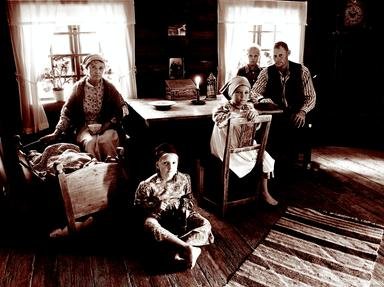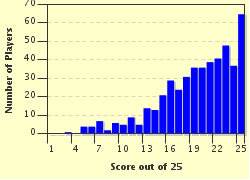Quiz Answer Key and Fun Facts
1. The Monroe Doctrine (1823) established the United States foreign policy that ...?
2. In the early 1800s, which of these factors was most important in the development of Northern manufacturing centers?
3. Both the Homestead Act (1862) and the Pacific Railway Act (1862) were efforts by the Federal government to do which of these?
4. After the Civil War, how did Southern state legislatures attempt to restrict the rights of formerly enslaved persons?
5. What does "antebellum" mean?
6. Who is the man who implemented the "factory system" in the USA? He opened several textile mills in Massachusetts and Rhode Island and is considered the "father of the American Industrial Revolution".
7. In the late 1800s, which factor directly contributed to the growth of the steel industry?
8. Most nativists of the late 1800s would most likely have supported ...?
9. The American Federation of Labor's support for "bread and butter" unionism was intended to do which of these?
10. What year did the Civil War begin?
11. Yellow journalism contributed to the start of the Spanish-American War (1898). How?
12. A goal set at the Seneca Falls Convention (1848) was achieved during the Progressive Era by the ...?
13. Which of these was a major reason for President Thomas Jefferson authorizing the Lewis and Clark expedition?
14. Starting with the election of President Andrew Jackson (1828), voter participation increased due to the ...?
15. During the 1850s Irish immigrants were often discriminated against. Why?
16. In his first inaugural address, President Abraham Lincoln stated his main goal for the nation was to ...?
17. Poll taxes, literacy tests, and "grandfather clauses" were adopted in Southern States primarily to do which of these?
18. During the late 1800s, major improvements to a nationwide system of trade were made with the ...?
19. The Louisiana Purchase (1803) was a foreign policy success for the United States primarily because it ...?
20. Under Chief Justice John Marshall, the Supreme Court strengthened its authority by which of these?
21. Which of these actions is most closely associated with the term Manifest Destiny?
22. Most Southern political leaders praised the Supreme Court decision in Dred Scott v. Sanford (1857) because it ...?
23. Before the former Confederate states could be readmitted to the Union, the congressional plan for Reconstruction required them to do which of these?
24. Which government action is most closely associated with the efforts of "muckrakers"?
25. In passing the Sherman Antitrust Act (1890), Congress intended to ...?
Source: Author
kazanjianm
This quiz was reviewed by FunTrivia editor
bloomsby before going online.
Any errors found in FunTrivia content are routinely corrected through our feedback system.


